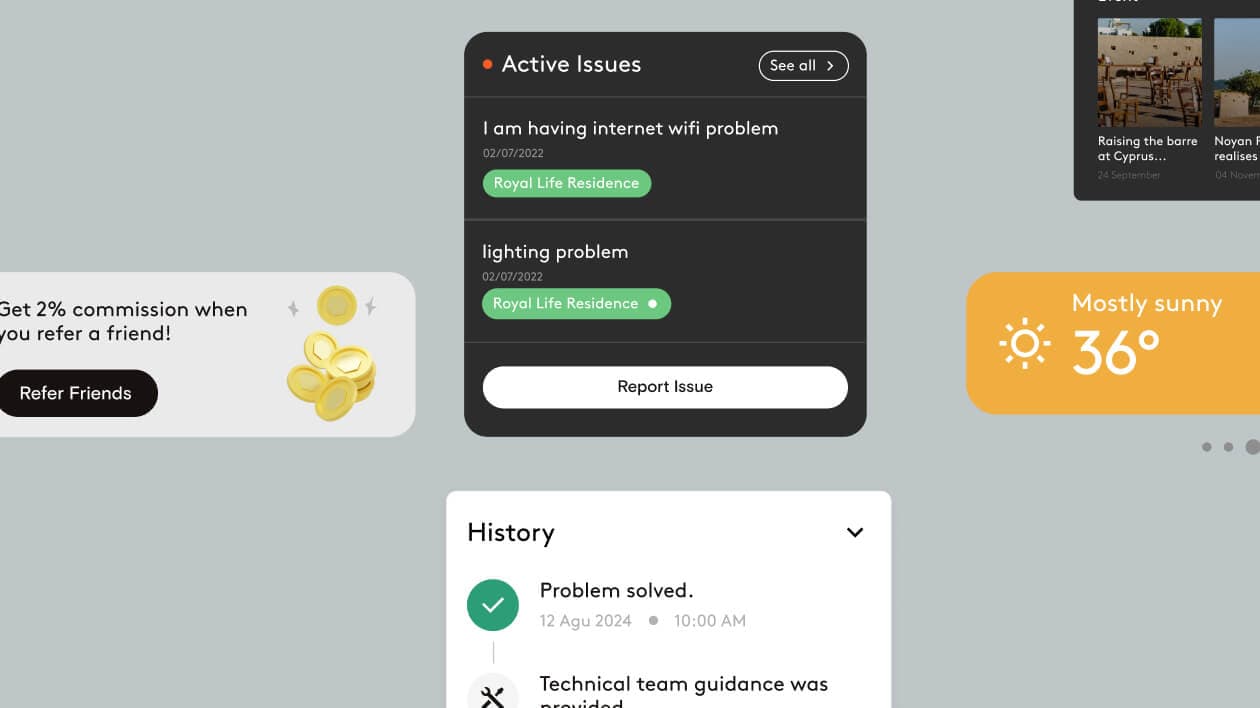AI Development Services
Need help building cutting-edge AI solutions? Saypr's AI development services can help you unlock the power of artificial intelligence. From custom model training to deployment and ongoing support, we offer a comprehensive approach to bring your AI vision to life. Let's discuss your project and see how AI can transform your business.
Agile Development Methodology
We utilize an agile development methodology to ensure flexibility, iterative progress, and continuous feedback throughout the AI development process. This allows us to adapt to changing requirements and deliver value incrementally.
Data-Driven Solutions
We believe that data is the foundation of successful AI development. We meticulously analyze your data to identify patterns, trends, and insights that can be used to train and optimize AI models. We also ensure data quality and integrity, which is crucial for building reliable and accurate AI solutions.
Ethical AI Development
We prioritize ethical AI development, ensuring that our solutions are fair, unbiased, and responsible. We adhere to industry best practices and ethical guidelines to minimize potential risks and ensure that AI is used for good.
Understanding Your Needs
We begin by deeply understanding your business goals and challenges. We work closely with you to identify how AI can be leveraged to achieve your desired outcomes. This collaborative process ensures that the AI solution we develop is tailored to your specific needs and context.
Design
We craft meaningful digital experiences that captivate and engage, blending creativity with strategy. From concept to execution, we make your brand stand out.
We shape distinctive brands that resonate, ensuring every element reflects your business’s core values.
Our branding process builds emotional connections, making your brand memorable and positioning it for long-term success in the market.
Yes, we offer comprehensive AI consulting services to help you navigate the world of artificial intelligence. Our experts can help you: * **Identify AI opportunities:** Identify how AI can be applied to your business to drive growth and efficiency. * **Develop AI strategies:** Create a roadmap for implementing AI solutions within your organization. * **Select the right AI tools and technologies:** Choose the most appropriate AI technologies for your specific needs. * **Evaluate AI vendors:** Help you select the right AI partners for your project.
AI can help your business grow in various ways: * **Increase efficiency and productivity:** Automate tasks, streamline processes, and free up your employees to focus on more strategic work. * **Improve customer experience:** Provide personalized experiences, offer targeted recommendations, and enhance customer service. * **Generate new revenue streams:** Develop innovative products and services powered by AI, such as AI-powered chatbots or personalized recommendation engines. * **Gain a competitive advantage:** Stay ahead of the curve by leveraging the power of AI and creating innovative solutions.
Getting started with AI development can seem daunting, but it's simpler than you might think. Here are some steps: 1. **Define your goals:** Clearly define what you want to achieve with AI. What problems do you want to solve? What outcomes are you looking for? 2. **Gather your data:** Collect and prepare the data you'll need to train your AI models. Ensure the data is relevant, accurate, and representative. 3. **Choose the right AI tools and technologies:** Select the AI technologies and tools that best suit your project needs and skill level. 4. **Experiment and iterate:** Start with small projects and gradually increase complexity. Don't be afraid to experiment and iterate as you learn.
There are numerous resources available to learn more about AI: * **Online courses and tutorials:** Platforms like Coursera, edX, and Udemy offer comprehensive AI courses for beginners and advanced learners. * **Books and articles:** There are many excellent books and articles on AI, machine learning, and deep learning. * **AI communities and forums:** Join online communities and forums to connect with other AI enthusiasts and professionals. * **AI conferences and workshops:** Attend industry conferences and workshops to learn from experts and network with other professionals.
The field of AI is rapidly evolving. To stay informed about the latest trends, you can: * **Read industry blogs and publications:** Follow blogs and publications dedicated to AI, machine learning, and deep learning. * **Attend AI conferences and workshops:** Participate in industry conferences and workshops to learn from experts and network with other professionals. * **Follow AI influencers on social media:** Connect with AI thought leaders and researchers on platforms like Twitter and LinkedIn. * **Take online courses and tutorials:** Enhance your AI skills by taking online courses and tutorials offered by platforms like Coursera, edX, and Udemy.
We prioritize quality and reliability in all our AI projects. Here's how we ensure success: * **Rigorous Model Evaluation:** We use industry-standard metrics and validation techniques to assess the performance and accuracy of our models. * **Data Quality and Preprocessing:** We meticulously clean, prepare, and process your data to ensure it's ready for AI training and development. * **Transparency and Explainability:** We strive for transparent and interpretable AI models, allowing you to understand how they arrive at their predictions. * **Continuous Monitoring and Improvement:** We monitor our models after deployment to ensure they continue to perform optimally and address any potential issues. * **Best Practices and Standards:** We adhere to industry best practices and ethical guidelines for AI development.
Developing and deploying AI responsibly requires careful consideration of ethical implications. Some key ethical considerations include: * **Bias and fairness:** Ensuring AI models are fair and unbiased, avoiding discrimination based on gender, race, or other factors. * **Privacy and data security:** Protecting user privacy and ensuring the secure handling of sensitive data. * **Transparency and explainability:** Making AI models transparent and interpretable, allowing users to understand how they arrive at their decisions. * **Job displacement:** Addressing the potential impact of AI on employment and ensuring a fair transition for workers affected by automation. * **Social impact:** Considering the broader societal implications of AI and ensuring it benefits society as a whole.
AI is transforming various industries, here are some examples: * **Healthcare:** AI-powered diagnostics, personalized treatment plans, drug discovery, and medical imaging analysis. * **Finance:** Fraud detection, risk assessment, algorithmic trading, and personalized financial advice. * **Retail:** Personalized recommendations, inventory management, customer service chatbots, and targeted advertising. * **Manufacturing:** Predictive maintenance, quality control, process optimization, and robotics. * **Transportation:** Autonomous vehicles, traffic management, route optimization, and logistics.
AI development requires a diverse skillset, including: * **Programming skills:** Strong programming skills in languages like Python, R, or Java are essential. * **Machine learning and deep learning knowledge:** Understanding core concepts of machine learning and deep learning algorithms is crucial. * **Data analysis and manipulation:** Skills in data analysis, data cleaning, and data visualization are essential. * **Problem-solving abilities:** AI development often involves solving complex problems and finding innovative solutions. * **Communication skills:** The ability to communicate technical concepts effectively to both technical and non-technical audiences is important.
There are numerous AI frameworks and libraries available, each with its strengths and weaknesses. Here are some popular options: * **TensorFlow:** A popular open-source machine learning framework developed by Google. * **PyTorch:** Another popular open-source deep learning framework known for its flexibility and ease of use. * **Scikit-learn:** A powerful machine learning library for Python, offering a wide range of algorithms and tools. * **Keras:** A high-level neural network library that runs on top of TensorFlow or Theano. The choice of framework or library depends on your project requirements, your experience level, and the available resources.
AI is already impacting our lives in numerous ways. Here are some real-world examples: * **Virtual assistants:** Siri, Alexa, and Google Assistant use AI to understand your voice commands and provide information or complete tasks. * **Spam filters:** AI algorithms analyze emails to identify and filter out spam, protecting your inbox. * **Personalized recommendations:** Netflix, Amazon, and Spotify use AI to recommend movies, products, and music based on your past preferences. * **Self-driving cars:** Autonomous vehicles use AI to navigate roads, detect obstacles, and make driving decisions. * **Facial recognition:** AI is used in security systems, social media platforms, and law enforcement to identify individuals.
AI can bring significant benefits to businesses across various industries. Here are some key advantages: * **Increased efficiency and productivity:** Automate tasks, streamline processes, and free up your employees to focus on more strategic work. * **Improved decision-making:** Gain valuable insights from data and make data-driven decisions. * **Enhanced customer experience:** Provide personalized experiences and improve customer satisfaction. * **New revenue streams:** Develop innovative products and services powered by AI. * **Competitive advantage:** Stay ahead of the curve by leveraging the power of AI.
AI development faces several challenges: * **Data quality and availability:** AI models require large amounts of high-quality data for training and validation. Data scarcity, bias, and inconsistency can hinder model performance. * **Model complexity and interpretability:** Deep learning models can be complex and difficult to interpret, making it challenging to understand why they make certain decisions. * **Ethical considerations:** Ensuring AI is developed and deployed ethically is crucial to avoid potential biases, privacy violations, and societal harms. * **Talent shortage:** There is a growing demand for AI professionals, but there's a shortage of skilled individuals in the field.
While AI offers numerous benefits, it's important to be aware of potential risks: * **Bias in AI models:** AI models can inherit biases from the data they are trained on, leading to unfair or discriminatory outcomes. It's crucial to address bias during model development and deployment. * **Data privacy and security:** AI systems often handle sensitive data, so data privacy and security are paramount. Implementing robust security measures is essential. * **Job displacement:** AI automation can potentially displace certain jobs, but it also creates new opportunities in areas like AI development and data science. * **Ethical considerations:** Developing and deploying AI responsibly requires careful consideration of ethical implications and potential societal impacts.
The cost of AI development services varies depending on the complexity of your project, the amount of data involved, and the desired features and functionality. We offer flexible pricing models to fit your budget. We'll provide a detailed cost estimate after understanding your project requirements.
Machine learning and deep learning are both branches of AI, but they differ in their approaches: * **Machine Learning:** Machine learning algorithms learn from data to make predictions or decisions. They often require feature engineering, where humans manually extract relevant features from data. * **Deep Learning:** Deep learning algorithms use artificial neural networks with multiple layers to learn complex patterns from data. They can automatically extract features, reducing the need for manual feature engineering. Deep learning is typically used for tasks requiring high accuracy, such as image recognition and natural language processing, while machine learning is suitable for tasks where data is structured and interpretability is important.
The future of AI is incredibly promising. AI is expected to continue to evolve and transform various industries, leading to: * **More advanced AI applications:** We can expect to see even more sophisticated AI applications in areas like healthcare, finance, transportation, and manufacturing. * **Increased automation:** AI will automate more tasks, freeing up humans to focus on more creative and strategic work. * **Personalized experiences:** AI will enable highly personalized experiences in areas like healthcare, education, and entertainment. * **New business models:** AI will create new business models and opportunities for innovation.
Our AI development process is tailored to meet your specific needs and project goals. Here's a general overview: 1. **Project Discovery:** We work closely with you to understand your project goals, requirements, and desired outcomes. 2. **Data Analysis and Preparation:** We analyze your data to identify patterns, trends, and potential challenges. 3. **Model Selection and Training:** We select the most appropriate AI algorithms and train them on your data. 4. **Model Evaluation and Validation:** We rigorously evaluate our models to ensure they meet your performance criteria. 5. **Deployment and Integration:** We deploy your AI solution into your existing systems or develop custom integrations. 6. **Ongoing Support and Maintenance:** We provide ongoing support and maintenance to ensure your AI solution continues to operate effectively.
Data is the fuel that powers AI. It's essential for training AI models and enabling them to learn and make predictions. The quality and quantity of data significantly impact the accuracy and performance of AI models. It's crucial to have relevant, accurate, and representative data for successful AI development.
We can help with a wide range of AI projects, including: * **Machine Learning:** Building predictive models for forecasting, classification, and recommendation systems. * **Deep Learning:** Developing advanced AI models for image recognition, natural language processing, and computer vision. * **Computer Vision:** Creating AI-powered solutions for object detection, image analysis, and video processing. * **Natural Language Processing (NLP):** Building AI systems that understand and process human language, such as chatbots, sentiment analysis, and text summarization. * **AI-powered automation:** Automating tasks and processes using AI algorithms. * **Data analysis and insights:** Extracting valuable insights from data using AI-powered tools. We're always exploring new AI applications, so don't hesitate to reach out if you have a unique project in mind.

















